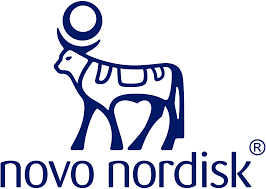OBESITY MANAGEMENT: THE WINDOW OF OPPORTUNITY FOR CARDIOMETABOLIC CLINICIANS
Program Moderators
 Dirk Blom
Dirk Blom
South Africa
 Peter Libby
Peter Libby
USA
 Raul Santos
Raul Santos
Brazil

IAS has created an educational program that comprehensively addresses the management of patients with obesity. This series of pre-recorded videos will close knowledge and practice gaps, reduce clinician uncertainty, and demonstrate how guidelines and evidence can be practically applied. Although this series was developed with a focus on Brazil, it is suitable for a worldwide audience due to the global nature of the obesity epidemic, with nearly half of the world’s population overweight or obese. This continued and significant increase in obesity over the past three decades represents a major public health epidemic that is critical to address.
Some of the negative health effects associated with obesity include an increased prevalence of degenerative joint disease, certain cancers, mental illness, gallbladder disease, and perhaps the most worrying rates of cardiovascular morbidity and mortality. Much of this increased risk is mediated by the increased prevalence of type 2 diabetes, atherogenic dyslipidemia, hypertension, sleep apnea, and fatty liver in people living with obesity. Furthermore, obesity is an independent cause of heart failure. Doctors often focus more on treating the consequences of obesity than on the disease itself. This is not surprising, given the past lack of effective and safe drugs to achieve weight loss and the difficulties faced by patients when trying to access bariatric surgery, which for many years was the only effective treatment for severe obesity.
In recent years, initially GLP-1 receptor agonists and subsequently dual GLP-1/GIP receptor agonists have been shown to result in significant weight loss accompanied by an improvement in the cardiometabolic profile in patients with and without diabetes. These therapeutic advances bring new hope to patients as an effective tool to control obesity and reduce associated cardiovascular complications. It is important for clinicians to be familiar with these new treatment options so that their patients can benefit from these therapeutic advances. In situations where patients cannot yet access these new therapeutic modalities, informed physicians play an important role in motivating and encouraging access.
This series was recorded in English, but is also available with subtitles in Portuguese.
Pre-Activity Information

This activity is designed for an audience of global health care professionals, including endocrinologists, diabetologists, lipidologists, cardiologists, and primary care clinicians.

A 3-part video series aimed at medical professionals to comprehensively address the management of patients with obesity. This video series, presented by world-renowned medical experts, is for primary care, endocrine, lipid and cardiac clinicians practicing in Brazil and worldwide.
Module 1: Epidemiology and Pathophysiology of Obesity and CVD
o Epidemiology of obesity and cardiovascular disease
o Atherogenic dyslipidemia in people with visceral adiposity
o Inflammation and obesity
Module 2: Obesity and Target Organ Damage
o Obesity, insulin resistance, and type 2 diabetes
o Obesity, NAFLD/NASH, and cardiovascular disease
o Obesity and heart failure
Module 3: Video 3: Pharmacotherapies for Obesity and CVD Prevention
o Management of Obesity: Importance of Lifestyle Vital Signs
o Blood pressure and dyslipidemia control to prevent cardiovascular disease in obesity
o Pharmacologic therapies to treat obesity and prevent cardiovascular disease

The IAS is proud to present this esteemed global faculty. More information on each faculty member can be found by clicking on their names.

Dirk Blom
Dirk Blom has received research grants, honoraria, or consulting fees for professional input or delivered lectures for Sanofi, Amgen, Amryt, Regeneron, Abbott, Servier and MSD.

Alice Y. Y. Cheng
Dr. Cheng declares sources of funding and relationships with the following commercial stakeholders in the healthcare sector: Abbott, Amgen, Astra Zeneca, Bausch, Bayer, Boehringer Ingelheim, Dexcom, Eisai, Eli Lilly, GSK, HLS Therapeutics, Insulet, Janssen, Medtronic, Merck, Novo Nordisk, Pfizer, Sanofi, Takeda.

Jean-Pierre Després
Dr. Després declares sources of funding and relationships with the following commercial stakeholders in the healthcare sector: Inversago Pharma Inc. (Advisory Services)

Kris V. Kowdley
Dr. Kowdley makes the following disclosures:
Consultant: CymaBay, Enanta, Genfit, Gilead, HighTide, Inipharm, Intercept, Madrigal, Mirum, NGM, Pfizer, 89bio
Research Support: Corcept, CymaBay, Genfit, Gilead, GSK, Hanmi, Intercept, Madrigal, Mirum, Novo Nordisk, NGM, Pfizer, Pliant, Terns, Viking, 89bio
Speaker Bureau: AbbVie, Gilead, Intercept
Stock Options: Inipharm.

Peter Libby
Dr. Libby is an unpaid consultant to, or involved in clinical trials for Amgen, AstraZeneca, Baim Institute, Beren Therapeutics, Esperion Therapeutics, Genentech, Kancera, Kowa Pharmaceuticals, Medimmune, Merck, Norvo Nordisk, Novartis, Pfizer, and Sanofi-Regeneron.
Dr. Libby is a member of the scientific advisory board for Amgen, Caristo Diagnostics, Cartesian Therapeutics, CSL Behring, DalCor Pharmaceuticals, Dewpoint Therapeutics, Kancera, Kowa Pharmaceuticals, Olatec Therapeutics, Medimmune, Novartis, PlaqueTec, Soley Thereapeutics, TenSixteen Bio, and XBiotech, Inc.
Dr. Libby’s laboratory has received research funding in the last 2 years from Novartis.
Dr. Libby is on the Board of Directors of XBiotech, Inc. Dr. Libby has a financial interest in Xbiotech, a company developing therapeutic human antibodies.
Dr. Libby’s interests were reviewed and are managed by Brigham and Women’s Hospital and Mass General Brigham in accordance with their conflict-of-interest policies.
Dr. Peter Libby has a financial interest in TenSixteen Bio, a company targeting somatic mosaicism and clonal hematopoiesis of indeterminate potential (CHIP) to discover and develop novel therapeutics to treat age-related diseases. Dr. Libby’s interests were reviewed and are managed by Brigham and Women’s Hospital and Mass General Brigham in accordance with their conflict-of-interest policies.
Funding: Dr. Libby receives funding support from the National Heart, Lung, and Blood Institute (1R01HL134892 and 1R01HL163099), the American Heart Association (18CSA34080399), the RRM Charitable Fund, and the Simard Fund.
Patents: Ridker P, Thuren T, Bermann G, Libby P, inventors; Brigham and Women’s Hospital, assignee. Use of Canakinumab. United States Patent Application 20200239564. 2020 Aug 18. 5409-0001; U.S. Provisional Patent Application for “Treatment of Brain Ischemia-Reperfusion Injury”.

Samia Mora
Dr. Mora has sources of funding and relationships with the following commercial stakeholders in the healthcare sector: Pfizer (consultant).

Aruna Pradhan
Dr. Pradhan declares sources of funding and relationships with the following commercial stakeholders in the healthcare sector: Kowa Research Institute; Novo Nordisk.

Viviane Rocha
Dr. Rocha has sources of funding and relationships with the following commercial stakeholders in the healthcare sector: Aché, Amgen, Amryt, Astra Zeneca, Biolab, GSK, Libbs, Novartis, Novo Nordisk, Roche, Sanofi.

Raul Santos
Dr. Santos reports receiving the following: consulting fees and lecture fees from Abbott, Amgen, Amryt, AstraZeneca, Aché, Biolab, Getz Pharma, Eli-Lilly, Libbs, Merck, PTC Therapeutics, Novo Nordisk, Novartis, Sanofi-Regeneron Pharmaceuticals; grant support from Amgen, Kowa, Esperion, Novartis, Sanofi-Regeneron Pharmaceuticals.

Naveed Sattar
Dr. Sattar has consulted for and/or received speaker honoraria from Abbott Laboratories, Afimmune, Amgen, AstraZeneca, Boehringer Ingelheim, Eli Lilly, Hanmi Pharmaceuticals, Janssen, Merck Sharp & Dohme, Novartis, Novo Nordisk, Pfizer, Roche Diagnostics, and Sanofi; and received grant support paid to his University from AstraZeneca, Boehringer Ingelheim, Novartis, and Roche Diagnostics.

Subodh Verma
Dr. Verma holds a Tier 1 Canada Research Chair in Cardiosvacular Surgery; and reports receiving research grants and/or speaking honoraria from Amarin, Amgen, AstraZeneca, Bayer, Boehringer Ingelheim, Eli Lilly, EOCI Pharmacomm Ltd, HLS Therapeutics, Janssen, Novartis, Novo Nordisk, Otsuka, Pfizer, PhaseBio, S & L Solutions Event Management Inc, Sanofi, sun Pharmaceuticals, and the Toronto Knowledge Translation Working Group. He is the President of the Canadian Medical and Surgical Knowledge Translation Research Group, a federally incorporated not-for-profit physician organization.

Karol E. Watson
Dr. Watson declares sources of funding and relationships with the following commercial stakeholders in the healthcare sector: Boehringer Ingelheim, Amarin, Amgen, Novartis, Eli Lilly
IAS planners and reviewers disclosed no financial relationship.

The IAS is very grateful to Novo Nordisk for their support of this educational activity.
